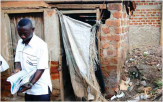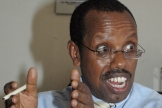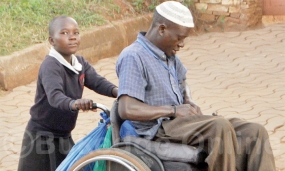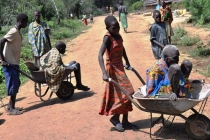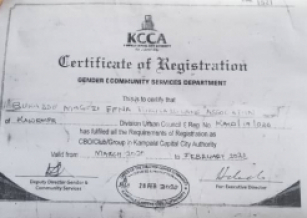A customary marriage is a marriage celebrated according to the rites of an African community in Uganda. It is rich in diversity as the marriage ceremony varies from culture to culture. For example, in Buganda, a ceremony of introduction (Kwanjula) suffices as a customary marriage.
The Customary Marriage (Registrations) Act recognises customary marriages and provides a procedure for registration:
After the marriage ceremony, the couple appears with two witnesses before a sub-county chief of the area where the ceremony took place or the town clerk if the marriage took place in a town or municipality.
A certificate of a customary marriage will be issued on payment of a fee.
Thereafter, a copy of the certificate and a cover letter from the sub-county chief or town clerk, are brought to the Uganda Registration Services Bureau (URSB) offices for the marriage to be registered and entered onto the Marriage Register.
The registration process costs Shs20,000 if registered within six months of the ceremony occurring and Shs40,000 if registered after six months of the marriage ceremony.
In our nation-wide outreaches from 2017 to date, we brought to the attention of Ugandans the necessity of getting a customary marriage certificate and the steps to acquiring one. We have been disseminating the same message through brochures, radio, television and on social-media. This approach has been premised on the realisation that customary marriages are increasingly celebrated every weekend and yet we are provided with very few records of these marriages.
At the end of it all, no effort is made to acquire proof of the marriage by registration. Marriages cannot be claimed without sufficient evidence, which in this instance, would be a marriage certificate.
Despite these being the most practiced type of marriages, customary marriages have not been registered as they should mainly due to lack of awareness that customary marriage is a legally recognised type of marriage in Uganda. Consequently, many couples feel they must give legitimacy to their unions through either a civil or religious ceremony thereafter.
Couples that do not register their marriages could face some difficulties in case there was a need to provide proof of the marriage say in the case of sudden demise of a spouse as a registration cannot be effected in the absence of the other spouse.
URSB is the repository for the national marriage register and, therefore, the official point of contact for anybody seeking information on marriage registration in the country. If your marriage is not on the register, URSB will not be able to certify your marriage certificate or respond positively to an inquiry as to whether a marriage took place or not.
Marriage certificates also have great attachment to individuals and persons today. Ugandans who need to acquire a visa to travel abroad will require the production of a marriage certificate.
Registration of a marriage allows one to share spousal benefits at work and in case of the demise of a spouse, their spouse(s) and children are able to benefit from the estates. Today many Ugandans have savings with financial institutions and other saving Funds, including NSSF. The savings may not be released by any bank or Fund to a claiming spouse unless they produce a certificate of marriage certified by URSB.
Certificates reduce post-humous disputes and enable institutions come to fair and just decisions. The benefits cannot be exhausted. Some Ugandans approach URSB after suffering the pain and frustration of not having a valid certificate of marriage.
Ugandans are, therefore, called upon to approach URSB to get their customary marriages registered in order to enjoy the benefits that accrue to married couples in Uganda. We call upon all institutions that deal with married people to accept registered customary marriage certificates as proof of marriage.
After you have conducted a cultural ceremony, please approach URSB at any of our offices and get to know the steps of acquiring a certificate of customary marriage. Register your customary marriage now!
Mr Twebaze is the Registrar General URSB
@BemanyaT
